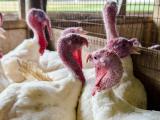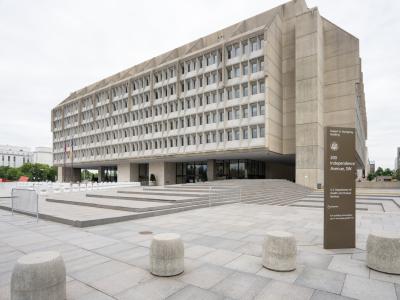Dec 21, 2004 (CIDRAP News) – Overcoming the threat of avian influenza is the single most pressing agricultural and public health issue facing Southeast Asia, Singapore's minister of state for national development, Cedric Foo, said yesterday in opening a regional meeting on the disease, according to Agence France-Presse (AFP) reports.
In his address to the Association of Southeast Asian Nations (ASEAN) in Singapore, Foo made a point others have raised in recent months: that combating the deadly avian flu will require regional collaboration.
"A coordinated regional approach to prevent, control and eradicate HPAI [highly pathogenic avian influenza] is crucial to overcoming this threat," AFP quoted Foo as saying.
The ASEAN members agreed today to focus on several activities for preventing and controlling avian flu, according to Xinhua, the Chinese news service.
The report said tasks were split out this way: Singapore will share information on regional epidemiologic studies; Thailand will attend to disease surveillance and alerts as well as diagnostic abilities; and Malaysia is to focus on disease-free zones, containment, and emergency preparedness. Coordinating countries will make detailed work plans.
Members of the ASEAN task force on avian flu will meet next in Thailand in May, the story added.
United Nations activities
The Vietnamese government and the United Nations announced on Dec 18 that they would set up a task force to coordinate efforts against avian flu. It will include the World Health Organization (WHO), the UN Food and Agriculture Organization, and Vietnam's ministries of health and agriculture, according to an online report by the Australian Broadcasting Corporation.
The WHO sounded a similar tone on Dec 15 in announcing the opening of a pandemic emergency response center at WHO headquarters in Geneva, according to the United Nations News service.
The emergency response center is a $5 million room that can be reorganized quickly to address diseases that threaten to become pandemics, such as avian flu. It is wired for a variety of communications aimed at linking far-flung laboratories and specialists, and can function even if local electrical and phone service are interrupted, the news release said.
The lab will allow the WHO to muster "a targeted public health response anywhere in the world in 24 to 48 hours," the WHO's Dr. Michael J. Ryan said in the news release.
Virus reported in wild birds
The push for partnerships and improved surveillance comes against a drumbeat of concern about the persistence of H5N1 flu in Southeast Asia. In the last week, a grey heron was found dead from that flu strain in Hong Kong, according to the World Organization for Animal Health (OIE). Tests of poultry farms within 5 kilometers of the dead heron found no indication of avian flu.
In Thailand, scientists have found evidence of the virus in wild native birds not previously known to harbor it, according to a Dec 14 story in the Bangkok Post. Ten of 1,011 bird samples tested recently were positive, including samples from pigeons, Asian open-billed storks, a cormorant, a red-collar dove, a scaly breasted munia, and a black drongo.
Although the WHO has not confirmed any human cases of H5N1 since the 32 deaths and 44 total cases noted by Oct 25, scientists in Japan say poultry workers and a health worker there might have been infected with the virus during a poultry outbreak last February.
None of the five people who might have been infected became seriously ill, according to articles posted on ProMED-Mail, a Web site of the International Society of Infectious Diseases. Researchers found antibodies to avian flu in blood samples taken in February and March, but hadn't determined whether the five had contracted the disease.
The Japanese health ministry is expected to release a detailed report Dec 22.
In other developments, AFP reported today that 3,680 chickens in southern Vietnam died or were killed recently after showing symptoms that suggested H5N1 avian flu. The chickens were on farms in the Mekong Delta's Can Tho city, the report said.
Tests for the virus were conducted on several other farms in the area, and results were being awaited, according to the story.
See also:



















